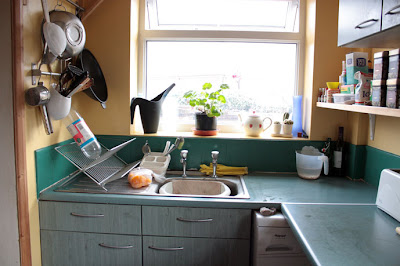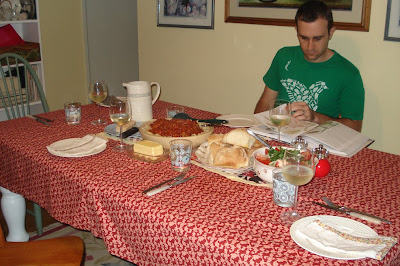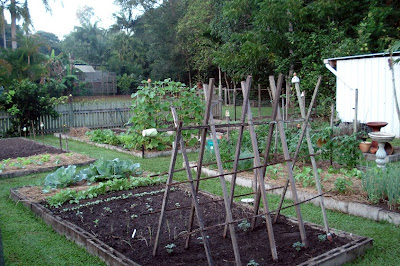So now you've moved into your 40s, maybe even your 50s. During your younger years I'm sure you heard all the negative silliness about aging but now that you're middle aged, you'll realise you're in the prime of your life. You feel confident, ambitious and capable. You are at the height of your money earning power, so you can pay off more debt now than at any other time. Decisions made in previous decades about reducing debt are now starting to pay off and you can see the light at the end of the tunnel. Hopefully, with a bit of hard work and determination, you'll pay off your mortgage now and keep putting something aside for your retirement. Try your best to pay off your mortgage before you retire. And again, do not add to your debt burden. Less is best.
FUNDING YOUR RETIREMENT
If you're working, it is a wise step to put money aside all through your working life for your retirement. In Australia, this is called superannuation and the government adds 9% of every employee's annual earnings to their superannuation fund. Most employees earning over $450 a week must put a certain amount of money into their own fund too. They can add more if they wish and receive tax benefits for doing so. Most Western countries have some form of government assisted retirement funding.
I want to make two important points about funding your retirement:
- You do not need as much as most investment brokers say you need. For example, Hanno and I live well on less than $25,000 a year.
- Make sure you keep all you superannuation/retirement funding in one account. As you move from job to job throughout your working life, make sure you have the details of your chosen superannuation/retirement account to give to your new employer each time you change jobs. If you let them put your contributions into the account they usually use, you'll end up fragmenting your investment. The more money you have in one account, the more likely you'll receive a good return on the investments made on your behalf with that money. If you've got money in several accounts right now, I encourage you to take some time in the next few weeks to contact those companies with the details of where your funds should be and instruct them to transfer them over. There may be a fee for doing that, find out what the fee is before you do it, but in the long run, you'll get a better return if you're funds are in one account. That is why it's important to give your information to each new employer you have over the years - you'll avoid paying transfer fees.
TEACH YOUR CHILDREN WELL
Children need to be taught life skills all through their lives, and now, in their teens and 20s, is no exception. Of course, you'll hit a brick wall if you've never tried to provide this type of parenting before - this is a life long style of parenting, starting when they were toddlers. Now you're at the pointy end, now you have to reinforce what you've been teaching them all their lives, now it really counts. As in previous stages you make sure you are a good role model for them and always be the kind of person you want them to be. Now you teach them about being a good and fair employee, you talk to them about how to treat their friends and acquaintance with respect, and above all, you help them develop self respect and confidence.
There are also the practical skills like driving, shopping for groceries, cooking, looking after their own clothes - how to wash and iron them, and saving. Even if you've encouraged saving and focused on money management before, now is the time to reinforce all that again because there will be a lot of peer pressure to spend, spend, spend. This is the most difficult time for a parent, but it's also the most rewarding. If you can set your children out into the world, fully equipped with the life skills they need, as well as the formal education of schooling - in whatever form that took in your family, you will have given your children their very best chance of a happy and successful life.
GROW INTO YOUR LIFE
As you age you'll realise that you don't have to please everyone around you. You mature, and part of that maturity is to make yourself content. This is the time of life when the children have grown out of their very dependent stage and with that, you get more time to yourself. It's not as freeing as when they leave home, but at this stage you get an inkling of how things will be when your babies fly off and make their own lives.
Now is the time to develop your hobbies and to get enjoyment from the things you choose to do. You'll have the time now to learn new skills, develop your passion for cooking, or painting, sewing, gardening, hiking, camping, or a hundred other things you'll now have time for.
If you choose to live like Hanno and I, now is the time to develop your home and land so it can support you in later life. You might add chickens to the backyard, if you haven't already done so, you might add bee hives, aquaponics, or a couple of milking goats, and, of course, along with whatever you add, you should learn all you can about it. Do you need to add more fences? You should do that now. Whatever requires strength and energy, add it now because in your 60s, your strength will start to go and you'll wish you had thought to do it earlier.
If you're hoping to live with some degree of self sufficiency, now is the time to learn how to do everything that will help you with that aim. You'll need to learn how to bake, put up jams and preserves, mend clothes and shoes, if you're a couple, divide the chores and learning up between you both with each taking the things you enjoy doing. I like doing the inside tasks here and Hanno enjoys being outside, so he does most of the traditionally male chores like home maintenance and I am the homemaker. Now is the time to look into how you can develop your knowledge and understanding of your roles. Read - both books and blogs. I believe blogs are a wonderful way of seeing how others are living so you may pick the bits that you want to do and incorporate them into your own life.
When you're entering the final years of your fifties, and while you're still earning money, do an audit of your home. Look at your home in another way now - you want it to support you in your older years, you do not want it to be a burden. Now might be the last time you have a chance to change what you don't like and what doesn't work for you. Look at your furniture - is everything in good order? You might need to replace a few items, but do so at the thrift shop, not the department store. There are many items of old or antique furniture that may suit you that have been well made and made to last many years. Even if you have to have things recovered, revarnished or painted, you'll end up with a more sturdy and longer-lasting piece than buying furniture from China or Vietnam.
You'll realise as you get older that you need much less so now is a great time to declutter. You can give some of your odds and ends to your children as they leave home and start living their own lives, so keep a couple of boxes of the good stuff for them to use, and give away or sell what you don't need.
What you're aiming for at the end of your 50s is to have your children out in the world, working and set up in their own homes, you want to have your mortgage paid off, or almost paid off, you want your home to be supportive and comfortable and you want to know most of the things you need to help you live in that way you have chosen. If you can say you've successfully done that, then you are set for the ride of your life in your 60s for that is the time when all your work pays off. You can retire, do whatever you want to do every day, and you can live life to its fullest measure. ♥




















































.jpeg)





.jpeg)
.jpeg)
.jpeg)
